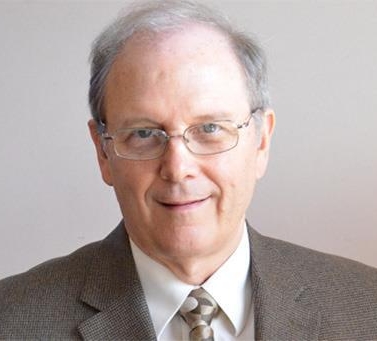TIO Public Square
Empathy: A Weakness or a Strength?
by Robert P. Sellers
Elon Musk, the world’s richest person – whose net worth is $374 billion – recently said: “The fundamental weakness of Western civilization is empathy, the empathy exploit.” The South African immigrant says this while working as the unelected leader of Trump’s Department of Government Efficiency (DOGE), which wants to reduce government spending by as much as $1 trillion. Thus far, the thousands of government workers fired and hundreds of millions of dollars stripped from agency budgets have severely damaged America’s programmatic expressions of empathy in this country and around the world.
ELON MUSK’S ATTACK ON GOVERNMENT EMPATHY
Startling cuts to the staffs and budgets of the Department of Education, the Internal Revenue Service and the Social Security Administration will have disastrous consequences for the lives of millions, ranging from the youngest children to the oldest seniors. But it is Musk’s “chainsaw” terrorization of two major agencies which are perhaps the most agonizing for the world’s poor and marginalized peoples.
Domestically, DOGE’s savagery of the Department of Health and Human Service (HHS)
would severely impact the poor and vulnerable, particularly those relying on federal programs like Medicaid, [access to vital reproductive health services (Title X)], food assistance [Meals on Wheels and the Supplemental Nutrition Assistance Program (SNAP)], and housing assistance. These cuts…threaten critical services, jeopardize funding for essential programs, and could lead to increased homelessness and hunger.
Internationally, cuts to the United States Agency for International Development (USAID) have gutted the nation’s principal organization for administering foreign aid and coordinating development assistance. These DOGE decisions have caused a disruption in the agency’s ability to support worthy programs in other countries, which is one of the most effective means the United States has of establishing and maintaining its reputation as a world leader committed to global humanitarian assistance. With a severely reduced staff, the termination of these programs have endangered the lives of millions of people worldwide.
Musk defends his DOGE activity and counters accusations that the cuts are cruel by saying that he believes in being empathetic and that “you should care about other people,” but that empathy is “destroying society.” To illustrate this belief, CNN journalist Zachery Wolf explains, Musk points to California’s intention “to provide medical insurance even to undocumented people who qualify for its low-income Medi-Cal program.” That is “civilizational suicidal empathy,” the DOGE operative insists, and America must not let empathy be “weaponized” in the actions of either domestic or international agencies of our government.
Elon Musk — Photo: Roboflow
Biographer Walter Isaacson followed Musk around his Tesla, Space X and Twitter worlds for two years, observing the man in action, interviewing him, his family, associates and adversaries to gain insight into what drives this “tough yet vulnerable man-child, prone to abrupt Jekyll-and-Hyde mood swings, with an exceedingly high tolerance for risk, a craving for drama, an epic sense of mission, and a maniacal intensity that was callous and at times destructive.”
A lack of empathy is a theme of Isaacson’s book, simply titled Elon Musk. The author told Christiane Amanpour in a 2023 interview that the billionaire “likes the notion of helping humanity. [However,] he has more empathy for humanity in general that he often does for the 20 people around him.”
Musk learned about “suicidal empathy” from his friendship with Saad Gad, “a Canadian marketing professor whose casual application of evolutionary psychology to culture war politics has brought him a sizable social media following.” Suicidal empathy is similar to white nationalism’s “great replacement theory.” This far-right conspiracy theory, promoted by French author Renaud Camus, suggests that with the complicity of “replacist” elites, white populations at large “are being demographically and culturally replaced by non-white peoples – especially from Muslim-majority countries – through mass migration, demographic growth and a drop in the birth rate of white Europeans.” It is not surprising, then, that Musk joins Trump in believing the United States, like other western societies, is bringing about its own destruction “by admitting immigrants from poorer, browner and more Muslim countries” [Wong, Ibid.].
EVANGELICAL CHRISTIAN COMPLICITY IN REJECTING EMPATHY
The idea that empathy is a bad thing has gained some following among certain evangelical Christians. These MAGA evangelicals have apparently decided that reshaping empathy as a “sin” or a “toxin” will excuse their support of Trump’s agenda. J. D. Vance is using the medieval Catholic concept of ordo amoris [‘order of love’] – which prioritizes love of God, then love of self and one’s family, over love for members of society – in order to argue that empathy toward those outside our own circles of affection is not as important as love for people who are close to us.
Julia Wong, writing for The Guardian, concludes: “The rightwing movement against empathy seeks to dismantle and discredit one of the essential tools for any society – our capacity to recognize and respond to suffering. We should see the campaign against empathy by Trump supporters for what it is: a flashing red light warning of fascist intent” [Ibid.].
The Right Reverend Mariann Budde — Wikipedia
On January 21, the day after Trump was inaugurated as president for a second term, he attended a prayer service at the Washington National Cathedral. The Right Reverend Mariann Budde, preaching to the gathered crowd of dignitaries, spoke directly to the president, saying: “In the name of our God, I ask you to have mercy upon the people in our country who are scared now.” Budde’s sermon ignited a raging fire of protests among Trump’s evangelical supporters.
“Do not commit the sin of empathy,” said Christian podcaster Ben Garrett, who posted a photo of the bishop in her religious attire, explaining “This snake is God’s enemy and yours too.” Allie Beth Stuckey, who hosts another Christian podcast, opined: “This is to be expected from a female Episcopalian priest: toxic empathy that is in complete opposition to God’s Word and in support of the most satanic, destructive ideas ever conjured up.” Pastor Joe Rigney pushed the idea even further in his article in the evangelical publication World: “Budde’s attempt to ‘speak truth to power’ is a reminder that feminism is a cancer that enables the politics of empathetic manipulation and victimhood that has plagued us in the era of wokeness. Bishop Budde’s exhortation was a clear example of the man-eating weed of Humanistic Mercy.”
Rigney has expanded these views on empathy in his book published in February 2025, The Sin of Empathy: Compassion and its Counterfeits. Almost immediately, he was invited by Southern Baptist influential leader and self-identified Christian exclusivist Albert Moher, president of The Southern Baptist Theological Seminary, to promote his book on Mohler’s podcast. Mohler pronounced his own opinion on empathy: “It has always seemed to me to be a synthetic word, an artificial word.” Paraphrasing Mohler, Wong reports that the Baptist leader sees empathy as “too closely tied to the ‘constant emoting’ of the modern age, a sign of how leftist thought has replaced the concrete with the abstract, and an outgrowth of Marxism and identity politics.”
POPE FRANCIS, A CHAMPION OF EMPATHY
Pope Francis — Photo: Catholic Church England and Wales, CC 2.0 BY NC ND
Argentine Jorge Mario Bergoglio – who was elected as Pope in 2013 and chose the name “Francis” to honor and remember Francis of Assisi, the patron saint of the poor – recently died. Of all the magnificent praise heaped upon this humble man who would have been embarrassed to hear such glorification of himself, one quality was repeatedly mentioned by those who spoke of the Pontiff in hushed and reverent tones. They celebrated him because he showed tremendous empathy toward the poor and marginalized people of the world.
Even in India, where one would suspect there is not a very large Catholic community, The Indian Express, a daily newspaper in Madras, wrote of the Pope’s passing with these generous words:
Pope Francis, who died this week aged 88 following a period of illness, never stopped speaking up for the disenfranchised and the disempowered, travelling around the world to urge peace, justice and reconciliation, even as his health began to fail. … A believer in dialogue and debate, Pope Francis advocated empathy over doctrinal rigidity, simplicity over pomp. “Who am I to judge?” he once said, when a journalist questioned him about queer relationships. His ready smile and [tenderhearted] charm helped bridge the distance between the Church and the global laity, even as within the institution he pushed hard against overcentralisation of power in Rome.
Father Mario Boies, a priest of the Congregation of the Most Holy Redeemer who minister in more than 100 countries, shares an anecdote about Pope Francis:
“Once,” the Pope recounted, “I listened to a person for 10 minutes, without saying anything. And at the end, this person told me: ‘Thank you, Pope Francis, for your help and your good advice.” And the Pope had said nothing…. “This means,” continues Bergoglio, “that when a person feels truly welcomed, listened to, esteemed and loved unconditionally with love-charity, the person begins to regain self-confidence and to find solutions to his or her problems on his or her own.” This is the way of true empathic listening!
Boies contends that from this personal experience of the Pope, one can understand how much he valued empathy in his relationships with others. In his address to the bishops of Asia in 2014, he said: “Nor can there be authentic dialogue unless we are capable of opening our minds and hearts, in empathy and sincere receptivity to those with whom we speak. … Such empathy must be the fruit of our spiritual insight and personal experience which lead us to see others as brothers and sisters...”
EMPATHY AS A STRENGTH
Elon Musk says that empathy is a weakness. MAGA evangelical Christians have called it a sin, a toxin, a manipulation and an artificial word and concept. Pope Francis has called it the fruit of our spiritual insight, the capacity for authentic dialogue and the action which leads to genuine encounter with others.
Musk has the most money in the world, but there will not be 250,000 mourners at his funeral someday. In America alone, an estimated 3.8 million viewers watched the funeral of Pope Francis on television or online. Those millions of admirers wished to say goodbye to an unassuming man whom they thought of as being great and noble – a spiritually “rich” man because he empathized with and gave himself to others. To repeat a familiar turn of phrase, Musk exhibits the love of power while Pope Francis practiced the power of love.
So, I must ask: is empathy a weakness or a strength?
Header Photo: Picryl





